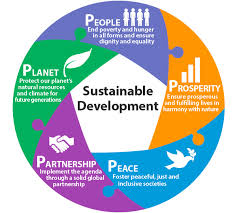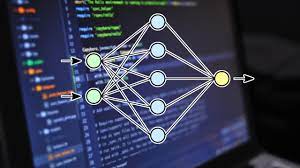The Role of Energy in Sustainable Development
Energy is a fundamental component of modern society, powering our homes, businesses, and industries. However, the way we produce and consume energy has significant implications for the environment and our long-term well-being. As the world faces increasing challenges related to climate change and resource depletion, the concept of sustainable development has emerged as a crucial framework for addressing these issues.
Sustainable development seeks to meet the needs of the present without compromising the ability of future generations to meet their own needs. Energy plays a central role in this equation, as it is essential for economic growth, social progress, and environmental protection.
Renewable Energy Sources
One key aspect of sustainable energy is the transition from fossil fuels to renewable sources such as solar, wind, hydroelectric, and geothermal power. These sources are abundant, clean, and have lower environmental impacts compared to traditional fossil fuels. By investing in renewable energy technologies, countries can reduce greenhouse gas emissions, improve air quality, and enhance energy security.
Energy Efficiency
Another important strategy for achieving sustainable development is improving energy efficiency across all sectors. By using energy more efficiently in buildings, transportation, industry, and agriculture, we can reduce waste and minimize our overall energy consumption. Energy-efficient technologies not only help mitigate climate change but also save money and create new job opportunities.
Access to Energy
Ensuring universal access to affordable and clean energy is essential for achieving sustainable development goals. Millions of people around the world still lack access to electricity and rely on traditional biomass for cooking and heating. By expanding access to modern energy services in rural areas and developing countries, we can improve living standards, promote economic growth, and enhance social equity.
Conclusion
In conclusion, energy plays a critical role in sustainable development by driving economic prosperity while safeguarding our planet for future generations. By embracing renewable energy sources, enhancing energy efficiency practices, and promoting universal access to clean energy services, we can create a more sustainable and equitable world for all. It is imperative that governments, businesses, communities, and individuals work together to accelerate the transition towards a more sustainable energy future.
Key Questions About Energy for Sustainable Development: Sources, Roles, and Contributions
- What kind of energy should be used for promoting sustainable development?
- Is energy for sustainable development Q1 or Q2?
- Which energy source can be used for sustainable development?
- What are 4 examples of sustainable energy?
- What is role of energy in sustainable development?
- How does energy contribute to sustainability?
What kind of energy should be used for promoting sustainable development?
When considering the promotion of sustainable development through energy use, it is essential to prioritize renewable energy sources such as solar, wind, hydroelectric, and geothermal power. These clean and abundant energy sources offer significant environmental benefits by reducing greenhouse gas emissions and minimizing pollution. Embracing renewable energy technologies not only contributes to mitigating climate change but also fosters energy security and economic growth. By shifting towards a more sustainable energy mix that prioritizes renewables, we can create a more resilient and environmentally friendly energy system that supports long-term sustainable development goals.
Is energy for sustainable development Q1 or Q2?
The question of whether energy for sustainable development falls under Q1 or Q2 is a common inquiry among individuals seeking clarity on the categorization of energy-related initiatives. In the context of sustainable development goals, energy typically aligns with Goal 7 (Q7) – “Ensure access to affordable, reliable, sustainable, and modern energy for all.” This goal emphasizes the importance of sustainable energy practices in driving social, economic, and environmental progress. By focusing on renewable energy sources, energy efficiency measures, and universal access to clean energy services, we can contribute to a more sustainable future that benefits both current and future generations.
Which energy source can be used for sustainable development?
When considering energy sources for sustainable development, renewable energy emerges as a key solution. Sources such as solar, wind, hydroelectric, and geothermal power offer abundant, clean, and environmentally friendly alternatives to traditional fossil fuels. By harnessing these renewable sources, countries can reduce greenhouse gas emissions, enhance energy security, and promote long-term sustainability. Investing in renewable energy technologies not only helps combat climate change but also fosters economic growth and social progress. Embracing renewable energy sources is crucial for achieving sustainable development goals and ensuring a more resilient and prosperous future for generations to come.
What are 4 examples of sustainable energy?
Sustainable energy encompasses various sources that minimize environmental impact and promote long-term viability. Four examples of sustainable energy include solar power, which harnesses sunlight to generate electricity without greenhouse gas emissions; wind power, utilizing wind turbines to convert wind energy into electricity; hydropower, generated from flowing water in rivers or dams to produce clean electricity; and geothermal energy, tapping into heat from the Earth’s core for heating and electricity generation. These renewable energy sources play a crucial role in advancing sustainable development goals by reducing carbon footprints and fostering a more environmentally friendly energy landscape.
What is role of energy in sustainable development?
Energy plays a pivotal role in sustainable development by serving as a cornerstone for economic progress, social equity, and environmental preservation. The way we produce and consume energy directly impacts our ability to meet present needs without compromising the resources available to future generations. Transitioning from fossil fuels to renewable energy sources, improving energy efficiency across all sectors, and ensuring universal access to clean energy are key strategies in advancing sustainable development goals. By prioritizing sustainable energy practices, we can mitigate climate change, enhance energy security, and foster a more equitable and resilient society for generations to come.
How does energy contribute to sustainability?
Energy plays a vital role in advancing sustainability by serving as a linchpin for economic development, social progress, and environmental stewardship. Through the adoption of renewable energy sources and energy-efficient practices, societies can reduce their carbon footprint, mitigate climate change impacts, and preserve natural resources for future generations. Access to clean and affordable energy not only drives innovation and job creation but also improves quality of life for communities worldwide. By prioritizing sustainable energy solutions, we pave the way for a more resilient and equitable future that balances the needs of current society with the well-being of the planet.




